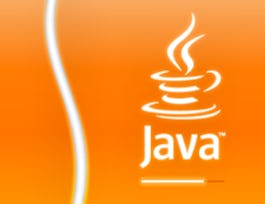Build on the software engineering skills you learned in “Java Programming: Solving Problems with Software” by learning new data structures. Use these data structures to build more complex programs that use Java’s object-oriented features. At the end of the course you will write an encryption program and a program to break your encryption algorithm.


Java Programming: Arrays, Lists, and Structured Data
This course is part of multiple programs.
Taught in English
Some content may not be translated



Instructors: Andrew D. Hilton
156,871 already enrolled
Included with 
Course
(3,125 reviews)
92%
Skills you'll gain
Details to know

Add to your LinkedIn profile
14 quizzes
Course
(3,125 reviews)
92%
See how employees at top companies are mastering in-demand skills

Build your subject-matter expertise
- Learn new concepts from industry experts
- Gain a foundational understanding of a subject or tool
- Develop job-relevant skills with hands-on projects
- Earn a shareable career certificate


Earn a career certificate
Add this credential to your LinkedIn profile, resume, or CV
Share it on social media and in your performance review

There are 5 modules in this course
Welcome to “Java Programming: Arrays, Lists, and Structured Data”! We are excited that you are starting our course to learn how to write programs in Java, one of the most popular programming languages in the world. In this introductory module, you will hear an overview of this course and be introduced to the supporting resources available.
What's included
1 video1 reading
In this module, you will learn about the basics of cryptography, the science of keeping information private and secure. You will learn about simpler cryptographic systems, which were used from the Roman Empire through the early 1900s. You will learn how to implement these ciphers, as well as how to break them. To solve these problems, you will work more with processing Strings, but also learn about arrays—a way to store an indexable sequence of elements. You will be able to: (1) combine Strings using concatenation; (2) build Strings within a Java program using StringBuilder; (3) use arrays to store and manipulate collections of data; (4) refactor your programs for improved organization using object-oriented principles; (5) and practice effective algorithm design.
What's included
21 videos5 readings4 quizzes
After completing this module, you will be able (1) to program a word frequency counter to analyze any input text file, (2) to select and substitute words from a list into a document template using both ArrayList and HashMap, (3) to create new lists to use in templates, (4) to recognize brittle code, and (5) to improve code with flexible, object-oriented design. You will gain these skills in the framework of developing a randomly generated story that we call GladLibs. You may discover that bald lions change peoples’ lives, or that fluffy dinosaurs get things done in a jiffy. We hope you have fun developing your Java skills this week!
What's included
13 videos4 readings3 quizzes
In this module, you will learn about how web server logs store information about visitors to a website, and you will write programs to access information like user IP address, date and time of access, and more. Using Java programs you write in this module, you will be able (1) to read information from a web server log, (2) to count the number of unique visitors to your website, and (3) to count the number of times each visitor uses your website.
What's included
15 videos4 readings4 quizzes
In this module, you will develop a program to break the Vigenère Cipher, a more complex version of the Caesar Cipher. You will improve your program in three stages: first decrypting messages where you know the language and key length, then adding the capability to handle messages with unknown key length, then extending the program to handle messages in a range of possible languages. Through this project, you will be able (1) to effectively use HashSet and HashMap, (2) to expand an algorithm from solving a simpler problem to handle broader, more complex problems, and (3) to design and modify program code involving a more complex collection of classes, methods, and data.
What's included
4 videos5 readings3 quizzes
Instructors


Offered by
Recommended if you're interested in Software Development

University of California San Diego

Duke University

Duke University

Duke University
Why people choose Coursera for their career




Learner reviews
Showing 3 of 3125
3,125 reviews
- 5 stars
75.23%
- 4 stars
19.25%
- 3 stars
3.16%
- 2 stars
0.92%
- 1 star
1.40%
New to Software Development? Start here.

Open new doors with Coursera Plus
Unlimited access to 7,000+ world-class courses, hands-on projects, and job-ready certificate programs - all included in your subscription
Advance your career with an online degree
Earn a degree from world-class universities - 100% online
Join over 3,400 global companies that choose Coursera for Business
Upskill your employees to excel in the digital economy
Frequently asked questions
No. Completion of a Coursera course does not earn you academic credit from Duke; therefore, Duke is not able to provide you with a university transcript. However, your electronic Certificate will be added to your Accomplishments page - from there, you can print your Certificate or add it to your LinkedIn profile.
Access to lectures and assignments depends on your type of enrollment. If you take a course in audit mode, you will be able to see most course materials for free. To access graded assignments and to earn a Certificate, you will need to purchase the Certificate experience, during or after your audit. If you don't see the audit option:
The course may not offer an audit option. You can try a Free Trial instead, or apply for Financial Aid.
The course may offer 'Full Course, No Certificate' instead. This option lets you see all course materials, submit required assessments, and get a final grade. This also means that you will not be able to purchase a Certificate experience.
When you enroll in the course, you get access to all of the courses in the Specialization, and you earn a certificate when you complete the work. Your electronic Certificate will be added to your Accomplishments page - from there, you can print your Certificate or add it to your LinkedIn profile. If you only want to read and view the course content, you can audit the course for free.


